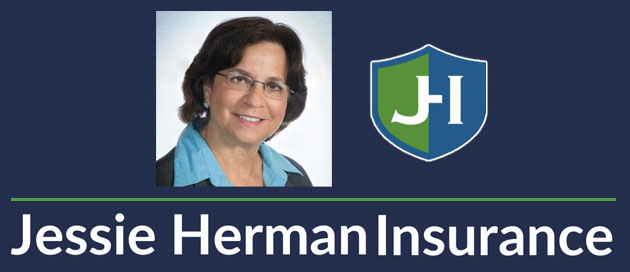FAQ
Medicare costs vary based on the specific plan and income, but most people qualify at age 65. Part A, covering hospital costs, is usually premium-free if you've paid Medicare taxes. Part B, for medical services, has a standard monthly premium. Additional coverage like Part D (prescription drugs) and Medicare Advantage plans have varying costs. Qualification also extends to some younger individuals with disabilities.
Yes, you may be eligible for financial assistance to help cover the costs of Medicare Part B and medications. Programs like Medicaid, Medicare Savings Programs, and Extra Help (Low-Income Subsidy) can provide assistance based on your income and resources. It's important to check your eligibility and apply through your local social services or Medicare office.
Medicaid eligibility varies by state in the US. To determine if you qualify, you should check with your state's Medicaid program or use the online tools provided by the government. Generally, eligibility is based on factors like income, family size, and disability status. Medicaid expansion under the Affordable Care Act also extended coverage to more low-income adults in some states. It's essential to consult your state's specific guidelines for accurate information regarding your eligibility.
Whether you need to enroll in Medicare depends on your age and circumstances. If you're 65 or older and eligible, it's generally advisable to enroll to ensure you have healthcare coverage. However, if you have other qualifying coverage, like employer-sponsored insurance, you may have options. It's crucial to understand your situation and consult with Medicare or a healthcare advisor to make an informed decision.
Yes, there can be penalties for not enrolling in Medicare when you're eligible. If you delay enrollment in Medicare Part B (medical insurance) and don't have other creditable coverage, you may incur a late enrollment penalty. This penalty typically results in higher premiums for Part B coverage for as long as you have it. It's important to understand your Medicare enrollment deadlines to avoid potential penalties.
Medicaid is a government funded healthcare program in United States that provides medical assistance to low-income individuals and families. It is jointly funded by the federal and state governments and administered by individual states. To qualify for Medicaid, you typically need to meet certain income and resource limits, which vary by state. Eligibility is primarily based on factors such as income, family size, and whether you are pregnant, disabled, a child, or an adult. To determine your specific eligibility and application process, you should contact your state's Medicaid office or visit their website.
To qualify for ACA (Affordable Care Act) plans on the Marketplace, you typically need to meet certain criteria, including:
Citizenship or Legal Residency: You must be a U.S. citizen or a legal resident.
Income: Your house
To qualify for ACA (Affordable Care Act) plans on the Marketplace, you typically need to meet certain criteria, including: hold income should fall within a certain range, usually between 100% and 400% of the federal poverty level. The exact range may vary by state.
Not Eligible for Other Coverage: You should not be eligible for other government-sponsored health coverage, like Medicaid or Medicare.
Not Offered Affordable Employer Coverage: If your employer offers health insurance, you may still qualify if the employer's plan doesn't meet certain affordability and coverage standards.
Enroll During Open Enrollment: Typically, you can only sign up for ACA plans during the annual open enrollment period. However, certain life events, such as marriage, the birth of a child, or the loss of other coverage, may qualify you for a special enrollment period.
Be sure to check with your state's Health Insurance Marketplace or Healthcare.gov for specific details and to determine your eligibility for ACA plans.
To qualify for ACA (Affordable Care Act) plans on the Marketplace, you typically need to meet certain criteria, including:
Citizenship or Legal Residency: You must be a USA citizen or a legal resident.
Income: Your house
To qualify for ACA (Affordable Care Act) plans on the Marketplace, you typically need to meet certain criteria, including: hold income should fall within a certain range, usually between 100% and 400% of the federal poverty level. The exact range may vary by state.
Not Eligible for Other Coverage: You should not be eligible for other government-sponsored health coverage, like Medicaid or Medicare.
Not Offered Affordable Employer Coverage: If your employer offers health insurance, you may still qualify if the employer's plan doesn't meet certain affordability and coverage standards.
Enroll During Open Enrollment: Typically, you can only sign up for ACA plans during the annual open enrollment period. However, certain life events, such as marriage, the birth of a child, or the loss of other coverage, may qualify you for a special enrollment period.
Be sure to check with your state's Health Insurance Marketplace or Healthcare.gov for specific details and to determine your eligibility for ACA plans.
If your annual income is going to change and you receive an Advance Premium Tax Credit (APTC), it's important to report the income change to the Health Insurance Marketplace as soon as possible. Failing to do so could lead to issues with your APTC and potentially result in having to repay excess subsidies. To update your income, you can visit the Healthcare website or contact their customer service to make the necessary adjustments to your APTC based on your new income projection. This will help ensure that your premium tax credits align with your current financial situation.
If you've lost your Medicaid qualifications, you should contact your local Medicaid office or healthcare marketplace immediately. They can help you understand why you lost your coverage and guide you on steps to potentially requalify or explore alternative healthcare options. It's important to act promptly to ensure you have access to the necessary healthcare services.
Both spouses should have life insurance for financial protection and peace of mind. In the event of one spouse's passing, life insurance can provide financial support for the surviving spouse and any dependents, helping cover living expenses, debts, and future goals. It ensures that the surviving partner can maintain their lifestyle and secure their family's financial future.
The Extra Help program is run by the Federal Government. An individual who earns less than $21,870 a year must also have resources, savings or checking accounts, cash, gold, IRAs, stocks, bonds, bitcoin, treasury bonds, a 2nd car, a boat, jet skis, a camper, a 2nd home, etc. would all be considered as an asset. If their home is worth more than $500,000 then the value of the home over $500,000 is also considered. Anything valued over $1500 for a burial or final expense insurance policy would also be considered part of a person's reserves. An individual's resources/assets can not be worth $16,600.
The numbers for a couple with no dependents are higher. Joint income can be no more than $29,580 and assets $33,240 or less. However, the numbers creep up every year, so it pays to get an idea of how close you are to qualifying for Medicaid.
Do I Qualify for Medicaid If My Income Is 150% or Less Above the Poverty Level and Changes Annually?
Medicaid is run by each State Government. It is currently $13,900 per individual. However, some states such as Illinois have expanded Medicaid to include people who earn more money. For an individual in Illinois, an individual income can be as high as $20,121 and a couple's income can be as high as $27,214.before taxes.







